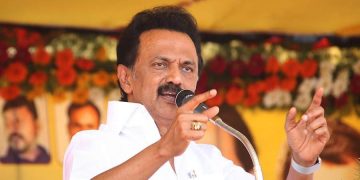Ashok Mahapatra
In cooperation with other QUAD members, expand its membership to include countries whose territory is being claimed by China and form our own Garland of Coalition.
Ever since the 1972 meeting between Mao Zedong and Richard Nixon, the world has accepted a One China policy. This is the Achilles Heel for China. It would be appropriate for India to openly court a more cooperative diplomatic relationship with Taiwan for mutual benefits. It is plausible that Taiwan could symbolically accept the official Indian territorial map
While the jury is still undecided on China’s role in spreading the COVID-19 epidemic, there can hardly be any doubt that the Chinese Communist Party (CCP) has used this health crisis as a smokescreen to challenge and remake the international world order with it as the most dominant power. This would include redrawing the existing world map in their favour.
By stepping up its oppression of Hong Kong, CCP has practically gone back on its agreement with the United Kingdom and the assurances they gave to the world. China stepped up its actions near the Senkaku Islands, violated Taiwanese airspace and claimed territory from 23 countries when it has land borders with only 14. The total area being claimed by China in the South China Sea is more than the land area of China itself. Then there is the intrusion in Galwan.
Ever since his elevation as General Secretary of the CCP and Chairman of the CPC Central Military Commission (CMC) in 2012, Xi Jinping is no doubt the most powerful leader since Mao Zedong who last held absolute power and has surrounded himself with those from Fujian, Shanghai and Zhejiang provinces.
It would be naïve to think that these actions by the PLA are taken by the local commanders. The PLA is comprehensively top-driven where the field and unit commanders hardly have any discretionary power. With so much at stake, CCP can hardly afford to leave it to local commanders with a chance to blunder in what is plainly a hazardous policy terrain.
While exploiting the disjunctions in a COVID-19 ravaged world to advance its geopolitical goals, the CCP does not want a situation where the world allies together to contain its hegemonic tendencies. The building of infrastructure at a rather fast pace along its borders with China after years of neglect by India as well as joining the Quadrilateral Security Dialogue (QUAD) has certainly rattled China. Nonetheless, President Xi believes that China can take India down a notch or two in the subcontinent and show it up as a political lightweight to its smaller neighbours and would tie down India, thus making it unable to provide any meaningful support when things heat up in the South China Sea.
The other aspect is the fallout of the COVID pandemic which has resulted in a halt to the world economy – the Great Lockdown which has had a major adverse effect on Chinese production factories. The workers for these units come from the hinterland and do not enjoy adequate protection under labour laws. The present pandemic has resulted in many factories closing, which resulted in large scale redundancies. Unconfirmed reports indicate that this has given rise to frustration and discontent among the rural population within China.
The CCP as well as all authoritarian regimes are mortally scared of any situation where they are not able to control the narrative. So how do they control the narrative? One needs to look at George Orwell’s (a disillusioned Communist) books, Animal Farm and 1984. 1984 describes a dystopia where the state follows a brutal policy of draconian control by propaganda, surveillance, disinformation, denial of truth (double think), and manipulation of the past. It also states that power is into tearing down the human mind to pieces and putting them together in new shapes of your choosing. Both these statements are the hallmarks of any totalitarian regime and fit into the thought process of the CCP seamlessly.
Therefore, we need to reset our China policy to deal with both situations in an assertive but not aggressive manner with a long and medium term prospective. The first being China’s desire to be the most dominant power in the post-COVID world order. The second being China’s need to control the masses by diverting attention from its domestic challenges to raising the bogey of external threat.
In politics, there are no permanent friends or permanent enemies, only permanent interests where every country promotes its own interests. While doing so, one should bear in mind that while the earlier strategies may have served us satisfactorily, we should not be held hostage to them.
Ever since the 1972 meeting between Mao Zedong and Richard Nixon, the world has accepted a One-China policy. This is the Achilles Heel for China. It would be appropriate for India to openly court a more cooperative diplomatic relationship with Taiwan for mutual benefits. It is plausible that Taiwan could symbolically accept the official Indian territorial map.
In consonance to our Look East Policy, our diplomats need to aggressively court all the countries in the South China Sea rim to safeguard each other’s economic and territorial interests.
In cooperation with other QUAD members, expand its membership to include countries whose territory is being claimed by China and hold joint naval exercises and form our own Garland of Coalition. Increase patrolling in the Indian Ocean region to not only be a deterrent to Chinese navy but also increase surveillance on China’s energy requirements which passes through the Malacca Straits.
India needs to augment its assets on the ground for collection of intelligence. This has taken a backseat ever since the Gujral Doctrine. In this context, we should include Tibet and Xinjiang – area which we have neglected over years.
Another issue that has been plaguing India is that it is considered a soft negotiator — willing to bend backwards to conclude agreements without assertive negotiations – perhaps a result of a lack of long-term strategy as well as political need for short-term headline results. This always gives the other party an upper hand. This is nothing new. This is a burden we carry for centuries. Time and again, India has been saddled with agreements and treaties that are a millstone around its neck. It is time that India showed some spine and stood up for its interests rather than be temporarily be appreciated as the good boy.
Without undermining the present efforts to defuse the present standoff in Eastern Ladakh and the prospects of an evolving new world order post COVID-19, it is imperative that India needs to reset its long-term and medium-term strategies and find its rightful place in the new world order. Together with other Asian countries we can usher in the Asian Century. Let’s do it.
The writer is a retired director of the Safety Division of the International Maritime Organisation of the UN.






































